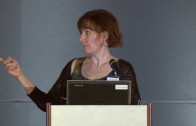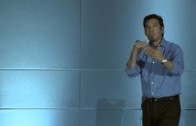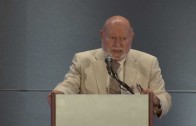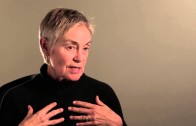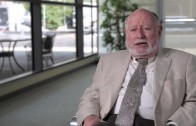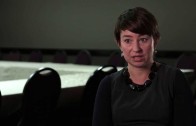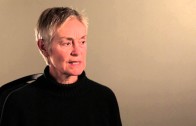In the Saturday ISSOTL 2013 plenary, Changing Higher Education One Step at a Time, colleagues who are already making a difference share their stories, describing projects they’ve undertaken, on different levels, from efforts to intervene in international debates to working for change within our own programs and departments.
Sherry Linkon (Georgetown University, U.S.) will moderate the plenary session, which will feature Arshad Ahmad (McMaster University, and President of the Society for Teaching and Learning in Higher Education, Canada), Klara Bolander Laksov (Karolinska Instituet, Sweden), Marian McCarthy (University College Cork, Ireland), and Julie Reynolds (Duke University, U.S.).
Sherry Lee Linkon is Professor of English and Director of the Writing Program at Georgetown University. Her SoTL research examines student learning in disciplinary and interdisciplinary courses in the humanities, and she studies and speaks about social class issues in higher education. Linkon has worked as an academic organizer in a variety of settings — within academic programs, in interdisciplinary centers, in professional organizations, in academic unions, and online, by developing resources for students, faculty, journalists, and general audiences.
Arshad Ahmad is the Associate Vice President and Director of McMaster University’s Institute for Innovation and Excellence in Teaching and Learning. His current research interests are in Accelerated Hybrid Learning Designs, Conceptual Change, Teaching Philosophies and Strategies. Arshad is the President of STLHE – The Society for Teaching and Learning in Higher Education, which is a national association of teachers. He is also the Vice-President of ICED – The International Consortium for Educational Development consisting of 23 member organizations worldwide. Both STLHE and ICED, aim to improve the quality of the student learning experience. In 1992, Arshad was recognized for leadership in teaching with a lifetime 3M National Teaching Fellowship — a program he coordinated for 10 years.
Klara Bolander Laksov is associate professor in Medical Education at Karolinska Institutet, Sweden, with a background in sociology and medical education. Klara leads a research group on learning environments and educational development. She is involved in the development of educational quality at local and national level as member of the educational board at Karolinska Institutet and former chair of the Swedish network for educational development (SwedNet). Her current research investigates the meaning of the clinical learning environment for the quality of student learning in medical and health undergraduate programs and the enactment of policy and change in higher education.
Marian McCarthy co- directs Ionad Bairre, the Teaching and Learning Centre, University College Cork, Ireland, which she co-founded with Bettie Higgs in 2006. The Centre provides a suite of accredited and developmental programmes for staff, postgraduate students and researchers. Marian’s research is influenced by SoTL and by Harvard’s Project Zero Classroom, whose synergies impact her teaching. She has a life –long interest in arts approaches and in workshop pedagogy. She holds the President’s Award for Teaching Excellence at UCC and won a number of team awards with Bettie for their work in developing the Centre and enhancing the student experience.
Julie Reynolds is an Associate Professor of the Practice in the Biology Department at Duke University, and also serves as the Director of Undergraduate Studies. In 2002, she was one of the first scientists to teach in the award-winning Thompson Writing Program at Duke. As a member of the biology faculty, she teaches a graduate level course on scientific teaching, and writing-intensive science courses, including a course for undergraduate thesis writers. In addition to teaching, Julie has an active research program focused on pedagogies that promote science literacy, particularly Writing-to-Learn strategies (www.science-writing.org). Her current Writing-to-Learn research is funded by the National Science Foundation, and she also has a National Institute of Health training grant to support her work promoting diversity within the biomedical and biological sciences. Julie is the Vice President for Education and Human Resources of the Ecological Society of America, an Atlantic Coast Conference (ACC) Teaching Scholar, and a facilitator for the American Society for Microbiology’s Biology Scholars Research Residency Program.
(626)
